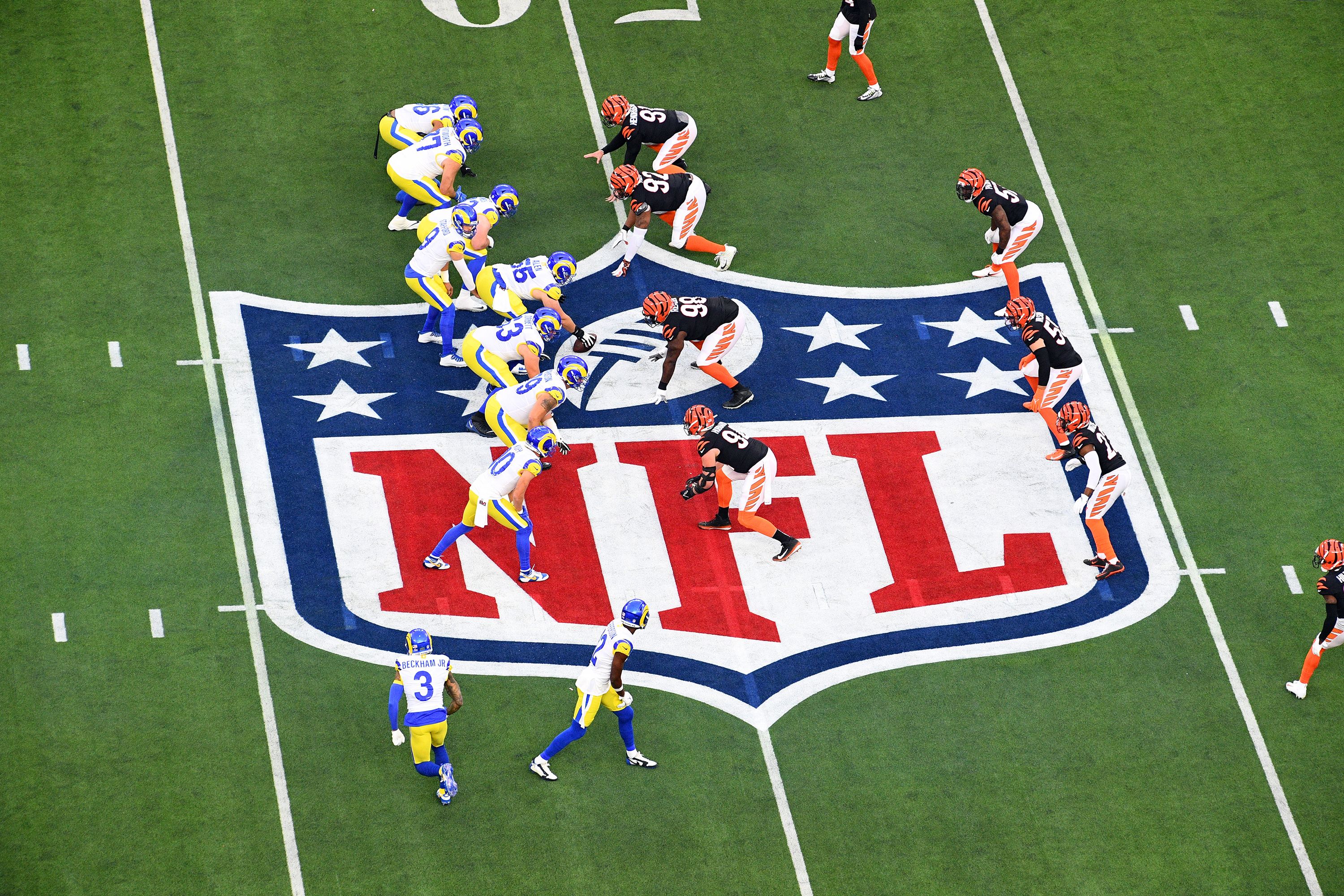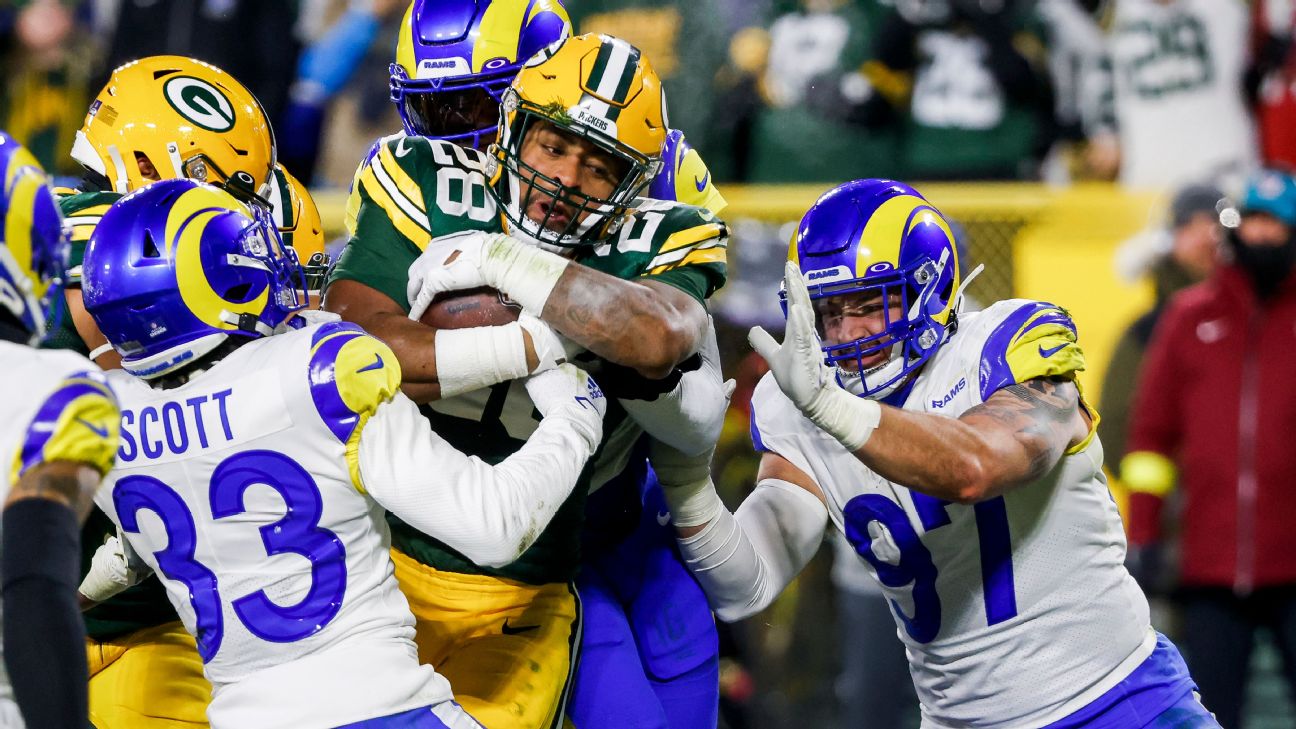The NFL playoffs are a thrilling time for football fans, as teams battle it out for a spot in the Super Bowl.
One major aspect of this competitive postseason landscape is the presence of wild card teams, which provide an opportunity for teams that didn’t win their division to still compete for the championship.
Understanding the number and significance of wild card teams is essential for NFL enthusiasts looking to better grasp the playoff system.
In recent years, the NFL has seen some changes to the playoff format, notably the expansion of the number of wild card teams. As of the 2020 season, the NFL playoff structure consists of 14 teams in total, with seven teams from each conference – the AFC and NFC.
This means that each conference sends three wild card teams to the NFL playoffs, in addition to four division champions.
These wild card teams play a crucial role in the excitement and unpredictability of the NFL postseason. With the intense competition among the 12 squads vying for the coveted three wild card spots in each conference, fans are treated to thrilling clashes on the road to the Super Bowl.
This dynamic element of the playoffs keeps interest levels high and adds an extra layer of intrigue to the NFL season.
Understanding Wild Card Teams
In the National Football League (NFL), wild card teams are those that qualify for the playoffs without winning their respective division title. These teams compete in the postseason and have a chance to advance to the Super Bowl, just like division winners.
Currently, there are six wild card teams in the NFL playoffs, three from each conference (AFC and NFC).
The inclusion of wild card teams makes the playoffs more exciting and competitive, as it allows strong teams that did not win their division to still have a chance at postseason glory.
This system was introduced to reward teams that had strong performances throughout the regular season, even if they did not finish as division champions.
The NFL expanded its playoff format in 2020, increasing the number of wild card teams from two to three per conference. This change brought the total number of playoff teams to 14, with seven teams from each conference participating in the postseason.
The top four teams in each conference are the division winners, while the remaining three spots are filled by the wild card teams.

To determine the wild card teams, the NFL considers several tie-breaking procedures, including head-to-head records, records against common opponents, and conference records.
These criteria ensure that deserving teams qualify for the playoffs, making the journey to the Super Bowl more challenging and thrilling for both fans and players.
In summary, wild card teams play a crucial role in the NFL postseason, adding an extra layer of excitement and competition to the playoffs. By including additional teams, the league gives more franchises a chance to vie for the ultimate prize – the Super Bowl title.
History of Wild Card Teams in the NFL
The wild card system was introduced to allow more teams to participate in the NFL postseason. Over the years, the number of wild card teams has increased, and their impact on the league has been significant.
In the early days of the NFL playoffs, the AFL implemented a playoff format in 1969, which saw the top two teams from each division qualify for the postseason. This format allowed for wildcard teams to have a shot at the championship game.
However, it wasn’t until 1975 that the first wild card team, the Dallas Cowboys, advanced to the Super Bowl. They faced the Pittsburgh Steelers in Super Bowl 10, but ultimately lost.
As the years went by, the NFL expanded the playoff format by increasing the number of wild card teams. The 10-team system was used from 1978 to 1989, which included both wild card games on the same day. This system allowed for more teams to compete for a chance at the championship game.

In recent years, the NFL playoffs has seen a total of six wild card teams, with three from each conference. This structure sends four division champions and three wild card teams from each conference to the postseason. The opening round of the playoffs, known as the “wild card round,” features these teams, providing an opportunity for them to advance to the championship game.
Throughout history, a total of 11 teams have managed to reach the Super Bowl as wild card teams, with seven of them emerging victorious and taking home the Lombardi Trophy.
Some notable examples of wild card teams making it to the Super Bowl are the New England Patriots, the Pittsburgh Steelers, the New York Giants, and the Green Bay Packers. Each of these teams managed to win three games on the road en route to their Super Bowl appearances.
The inclusion of wildcard teams in the NFL has not only expanded the playoffs but also provided some of the most memorable and exciting games in the history of the league.
Although they may not be the top seeds, wild card teams have proven that they are not to be underestimated, as they can often defy the odds and win the ultimate prize in the sport.
How Wild Card Teams Are Selected
In the NFL, the selection of Wild Card teams is determined by the overall regular season standings once the division winners have been established. There are a total of 6 Wild Card teams, with 3 teams coming from each conference.
The selection process begins with the regular season records of all non-division-winning teams in a conference. In order to determine which squads receive a Wild Card berth, the NFL utilizes tiebreaker rules that prioritize certain aspects such as head-to-head victories, winning percentage within the conference, and strength of victory among others.
Within the framework of the NFL playoffs system, these Wild Card teams must participate in the first round of the postseason games known as the “Wild Card Round”.
This stage serves as an elimination round for the Wild Card teams, where they face the lower-seeded division winners, while the top-ranked division winners in each conference receive a bye week to advance directly to the following round.

Being a Wild Card team can offer advantages as well as challenges. On one hand, it allows franchises that didn’t capture a division title to still have a chance to compete for the Super Bowl.
On the other hand, these teams generally face a more demanding path to the championship, given that they have to play an additional round of postseason games and often face high-seeded opponents.
To sum up, Wild Card teams are an integral part of the NFL playoffs system, providing additional excitement and unpredictability for fans and players alike. These six teams, three from each conference, are selected based on their regular season records and tiebreakers; their postseason journey begins with the Wild Card Round and paves the way for a potential Super Bowl appearance.
Impact on NFL Playoffs
The expansion of the number of wild card teams in the NFL has had a notable impact on the playoffs. Previously, the NFL operated with a 12-team playoff field, having six teams from each conference (AFC and NFC). This format included four division winners and two wild card teams from each conference.
However, starting from the 2020 season, the NFL decided to expand the playoff field to 14 teams, consisting of seven teams from each conference, adding an extra wild card team for both AFC and NFC.
This change has led to a more competitive playoff scenario, as it allows more teams with a chance to compete for the Super Bowl. With the new playoff structure, the division winners are still seeded Nos. 1-4 by record, with the final three spots in each conference filled by wild card teams. The addition of a seventh team in each conference means that there is an extra wild card game taking place between the Nos. 2 and 7 seeds.

Another significant change resulting from this new playoff format is the decrease in the number of first-round byes, which now only applies to the top-seeded team in each conference.
Previously, the top two seeds in each conference received a first-round bye. This new format rewards the top team with a significant advantage and creates greater competition for the remaining teams seeking a bye.
In summary, the addition of an extra wild card team in each conference has increased the overall competitive nature of the NFL playoffs. The new structure brings more teams into the fold and alters the dynamics of the first-round byes, giving the top-seeded teams an even greater advantage.
As the league continues to evolve and embrace changes in its playoff format, fans can look forward to more exciting matchups and storylines throughout the postseason.
Successful Wild Card Teams
In the history of the NFL, several wild card teams have defied the odds and gone on to have successful postseason runs. It is worth mentioning that there have been a total of six wild card teams that have won the Super Bowl till now.
These inspirational stories showcase the resilience and determination of such teams and serve as a testament to the unpredictable nature of the NFL playoffs.
A prime example of a successful wild card team is the 2010 Green Bay Packers. Led by their skillful quarterback, Aaron Rodgers, the Packers entered the playoffs as the sixth seed and went on to defeat the Pittsburgh Steelers 31-25 in Super Bowl XLV.
Their journey to the Lombardi Trophy involved defeating the top three seeds of the NFC which makes their run even more impressive.
Similarly, in 2007, the New York Giants entered the playoffs as a wild card team and went on to defeat the previously unbeaten New England Patriots in Super Bowl XLII. With this extraordinary accomplishment, the Giants ended the Patriots’ quest for a perfect season. The Giants’ crucial regular season victory over the Patriots helped them build the confidence needed for their Super Bowl run.

The 2000 Baltimore Ravens also were a wild card team that went on to win the Super Bowl.
Their shutdown defense, led by Hall of Fame linebacker Ray Lewis, was the backbone of their success during the playoffs. They crushed the New York Giants 34-7 in Super Bowl XXXV, backed by their tenacious and unstoppable defense.
These examples of wild card teams achieving the ultimate success in the NFL showcase that anything is possible in the playoffs. The format enables underdog teams to rise above expectations and win it all, making the tournament even more exciting and unpredictable for fans.
Controversial Aspects
The NFL Wild Card playoff system has garnered its fair share of controversy throughout the years, primarily due to the high stakes involved in making the playoffs. One such controversy involves officiating decisions that have impacted the course of games and, consequently, the playoff picture.
For example, during a 49ers-Cowboys wild-card game, the Cowboys attempted to rush to the line with their punt team after successfully converting a fake punt.
Timely officiating decisions in such instances can make all the difference, often sparking debate among fans as well as NFL experts.
Another source of controversy lies in the very structure of the playoff system. The NFL has expanded its playoff field several times throughout its history. Most recently, the league increased the number of Wild Card teams from four to six, with three Wild Card teams now coming from each conference.

This expansion raises concerns about the balance between regular-season performance and playoff potential.
Adding to the list of Wild Card controversies are memorable officiating errors, like the infamous “Pacman” Jones unsportsmanlike conduct penalty that occurred during the 2016 AFC Wild Card game involving Cincinnati Bengals and Pittsburgh Steelers.
The call came after Cincinnati’s Vontaze Burfict was penalized for a personal foul, ultimately costing the Bengals the game and leading to heated discussions about the impact of officiating on such crucial games.
Despite these controversies, the NFL Wild Card system aims to provide the league with exciting and competitive postseason matches. As with any sports league, discussions around fairness, officiating, and qualification criteria will always be present. However, it is of utmost importance that the NFL and its teams continue striving for a consistently fair and transparent playoff system.
James is a big time NBA Golden State follower, who makes sure to catch games when he's in the area. He likes to follow International Soccer, with an interest in small town soccer club, Blackburn Rovers located in the North on the UK.

